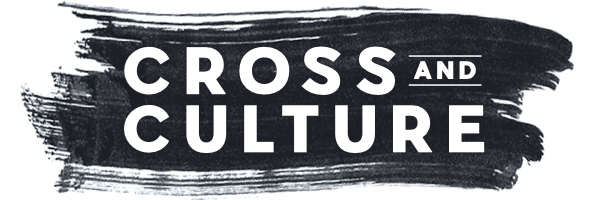Cross and Culture the eBook is now just $4.95. Shop here.
A post has been making the rounds on social media this week which juxtaposes two striking photos.
The first is from 1956, when a trio of Manhattan skyscrapers had their windows lit up to form three giant crosses over New York City in celebration of Easter. The second features the Empire State Building, whose upper stories, pinnacle and spire are bathed in those ubiquitous rainbow colours that have come to signify every latest indulgence of the sexual revolution.
The post’s caption reads, “New York City in 1956 vs. 2022. Change is not the same thing as progress.”
The last few, turbulent years on planet earth have given us more than enough proof that change is certainly not the same thing as progress. Western nations have continued down their post-Christian path in a rush to liberalise abortion and euthanasia laws, sexualise children, and exchange religious, medical and personal freedoms for the evermore indulgent power of the State.
The Tower of Babel is being rebuilt brick by brick — all in the name of “progress”.
Can we look toward 2023 with optimism or angst? Will the new year bring progress or just more insanity?
Progress is a Christian Idea
Though few realise it, progress is a distinctly Christian idea. For many societies that went before us, history was controlled by mysterious forces that repeated cyclically. Days were ordered by the rising and setting sun; months were governed by the moon; and years by the change of seasons.
More than this, time itself was seen as cyclical. Each ruler was connected to a previous ruler; one generation gave way to the next; crops, conflicts and catastrophes would return in endless patterns. For some cultures, even life itself was a cycle of reincarnation.
By contrast, we in the modern West view time as a linear phenomenon. Beginning at a distinct moment in the past, we see ourselves moving through passing stages towards an ultimate and hopefully better end.
It was the Bible that took our civilisation off the mouse-wheel of cyclical time. In its pages, we learned of a God who created the world and the first human couple at a distinct moment in the past — and who brought a man named Abraham from a pagan past to a hope-filled future.
Abraham’s descendants escaped slavery through a parted sea and established a kingdom in the Promised Land. Despite their disobedience and their exile to other lands, God continued to speak of a glorious destiny for the Jewish nation, both earthly and eternal.
The Cost of Forgetting God
The Christian story built on this grand narrative by revealing Jesus as the One through Whom God’s promises would be fulfilled — the One Who secured forgiveness and eternal life at the cross; not just for Jews but for all people. Even before Europeans had Bibles in their own languages and laps, these dramatic scenes gleamed brightly from the stained-glass windows of a thousand cathedrals in the towns and cities of Europe.
Slowly but surely, the biblical story convinced the West that history couldn’t be directionless and repeating eternally. If the Bible was true, history must be linear, driven by human action under God’s sovereign hand.
In short, our linear concept of time and our resolute hope for a ‘happy ending’ is soaked in centuries of Christian dreaming. Still today, Westerners operate with a distinctly Christian view of time — one that values “progress”.
But here’s the big difference: today we have forgotten God. In forgetting God, we have redefined “progress” as a purely human endeavour. In this secular age, we now see it as humanity’s great responsibility to be in the driver’s seat of history. It is our role, we believe, to push for each great liberation and advance — even if “progress” goes against God’s will and ends up harming those who are made in His image.
We mistakenly assume that every moment of history is an improvement on what came before. “Chronological snobbery” is the phrase that C.S. Lewis (1898-1963) used to describe the modern mindset.
Worse, our obsession with the future has led us to forget the risks, errors and folly of the past. As such, the same kind of tyranny that wrought so much destruction last century beckons again today.
The Future is Bright
The good news is that we have a choice: we don’t need to make these same mistakes again. God still calls us to a better future — in the world to come, and also in our present world. He longs for societies characterised by freedom, honour, and justice. As Amos 5:24 declares, “Let justice roll down like waters, and righteousness like a mighty stream.” This is God’s ideal for how society should function.
Humans absolutely have a part to play in the events of the future — by praying and seeking God, as Jeremiah admonished; and by heeding God’s call to carry out justice and righteousness.
But we must remember that God is sovereign over history. To the degree that we humans shape the future, it is only because God has invited us to join Him in that venture. We risk reliving the cruelties of the past only when we forget God’s place, and invent our own dim ideas of “progress”. Dystopia and disaster are threats to every human society, but the threat reduces the more we let God guide us forward.
The new year is yet unwritten. We do not know what awaits us in 2023 — whether on a personal, social, political or spiritual front. What we do know is that we will enjoy true progress only as we surrender our lives to the God of eternity Who is calling us towards a glorious destiny.
There is much we cannot control in this world. But we can play our small part in making 2023 the best year it can possibly be by giving the New Year to the One who holds the future in His hands.
Cross and Culture the eBook is now just $4.95. Shop here.
First published at the Daily Declaration.


Well said God bless
LikeLike
Amen. Bless you Kurt
LikeLike